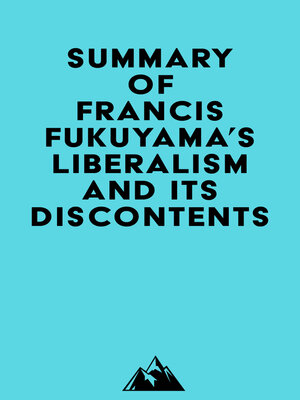
Sign up to save your library
With an OverDrive account, you can save your favorite libraries for at-a-glance information about availability. Find out more about OverDrive accounts.
Find this title in Libby, the library reading app by OverDrive.



Search for a digital library with this title
Title found at these libraries:
| Loading... |
Please note: This is a companion version & not the original book. Sample Book Insights: #1 Liberalism is defined by its emphasis on individual autonomy, egalitarianism, and universalism. It is a doctrine that asserts the moral primacy of the person against the claims of any social collectivity. It is highly procedural, and law is simply a system of explicit rules that define how conflicts are resolved and collective decisions made. #2 While democracy is based on the rule of the people, liberalism is based on the rule of law, which restricts the powers of the executive. Liberal democracy is what has prevailed in North America, Europe, parts of East and South Asia, and elsewhere since the end of World War II. #3 There are three basic justifications for liberal societies: pragmatic, moral, and economic. The first is that liberalism is a way of regulating violence and allowing diverse populations to live peacefully with one another. The second is that liberalism protects human dignity and autonomy, and in particular human autonomy. #4 Classical liberalism is a solution to the problem of governing over diversity. It is based on the principle of tolerance, which states that you do not have to agree with your fellow citizens about the most important things, but only that each individual should get to decide what they are without interference from you or the state.






